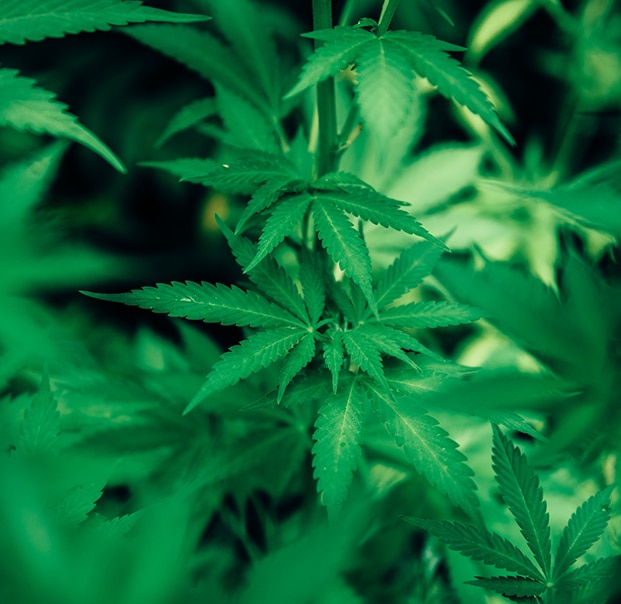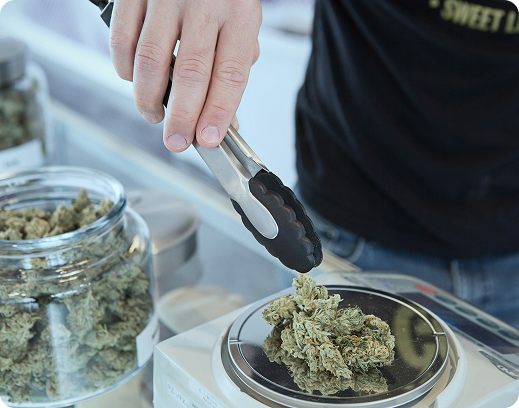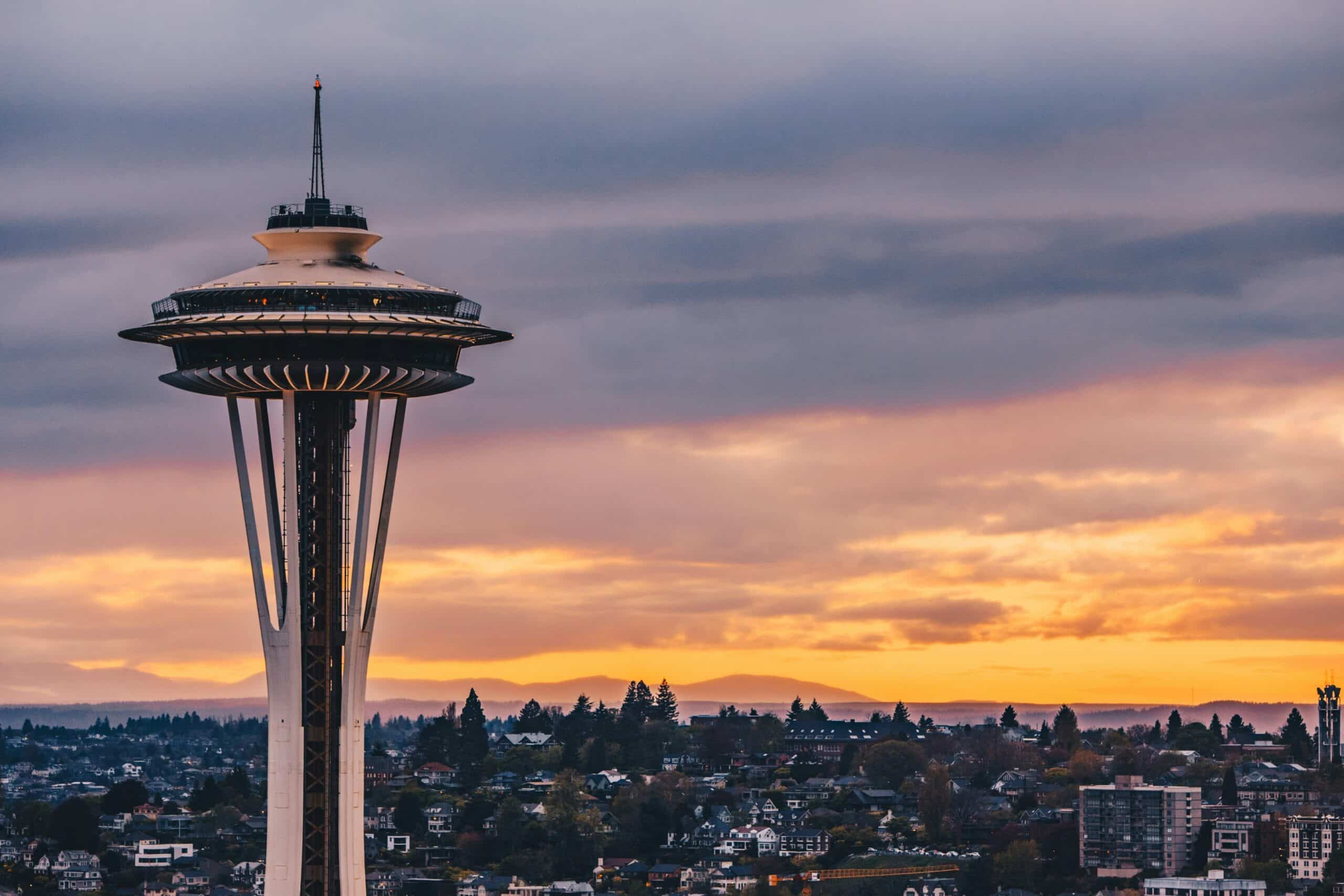How to Open a Dispensary in Washington State
Thinking about launching your cannabis business in Washington? You’re stepping into one of the most mature and competitive cannabis markets in the U.S. This guide walks you through the process of how to open a dispensary in Washington, from forming your business and securing the right dispensary licenses to navigating compliance systems and standing out in a saturated landscape. Whether you’re new to the space or scaling up, you’ll find the insights you need to launch with confidence.

Article Summary
Opening a cannabis dispensary in Washington State involves more than just securing a retail dispensary license. From selecting a compliant location and meeting strict security requirements to understanding nuanced local regulations and market saturation, success in this well-established market takes thoughtful planning. This article breaks down each critical step so you can build a compliant, well-positioned business in one of the country’s most evolved cannabis ecosystems.
Why Start a Cannabis Business?
Opening a dispensary offers immense opportunities:
-
High Demand
With the growing acceptance of medical and recreational cannabis across multiple states and countries, dispensaries are seeing a surge in demand. Consumers are increasingly looking for high-quality products for health, wellness, and leisure, creating a constant need for reliable, accessible dispensaries.
-
Job Creation
The cannabis industry is projected to create thousands of jobs across various sectors, including cultivation, retail, logistics, and marketing. This growth not only provides employment opportunities but also contributes to local and national economies.
-
Strong ROI Potential
Entrepreneurs who navigate the complex regulatory landscape can make big returns on their investments. With proper business planning, branding, and compliance, dispensaries can tap into a rapidly growing market with high-profit margins.
Licensing Process & Main Cannabis License Types
If you want to open a marijuana dispensary in Washington, getting the right cannabis business license is step one—and the process is tightly managed by the Washington State Liquor and Cannabis Board (WSLCB). While it’s structured and detail-heavy, understanding the license application process, types, and requirements early on can save you time down the line.
Main License Types
- Retailer License: Allows the sale of cannabis products to consumers aged 21 and over. Note that retailers cannot hold producer or processor licenses simultaneously.
- Producer License: Permits the cultivation and harvesting of cannabis plants. Producers can sell to processors and other producers, but not directly to consumers.
- Processor License: Enables the processing (including drying, curing, packing, and labeling) of cannabis into various products for sale to retailers.
- Transporter License: Authorizes the transportation of cannabis products between licensed businesses within the state.
- Research License: Allows for the production and possession of cannabis for approved research purposes.
- Cooperative License: Permits qualifying patients to collectively cultivate cannabis for medical use.
At the moment, Washington isn’t accepting new cannabis retailer license applications—except through the Social Equity Program, which aims to support communities most affected by past cannabis laws.
Application Essentials
Applying for a cannabis dispensary license means submitting a detailed application through Washington’s Business Licensing Services (BLS) portal. To be eligible, you must be 21 or older, have lived in Washington for at least six months, and submit documentation such as operating plans, personal history, criminal history, fingerprint cards, proof of business structure, and property leases.
For a deeper dive into licensing steps, fees, and timelines, check out our Licensing page.
Once you understand your licensing pathway, it’s time to build a financial plan that supports your launch and ongoing operations.

Financing & Cost Considerations
Operating a cannabis business isn’t cheap, but smart planning can set you up for long-term success. Your financial planning should encompass both initial investments and ongoing operational expenses.
Startup & Ongoing Costs
Initial investments for a dispensary in Washington can vary widely, typically ranging from $250,000 to $2 million, depending on factors like location, size, and operational scope. Major expenses include:
- Cannabis License fees (about $250 to apply, $1,381 annually)
- Real estate and renovations
- Security systems ($50,000–$70,000)
- Inventory and POS systems
- Marketing and branding ($30,000–$80,000)
- Insurance ($10,000–$20,000 annually)
Once you’re open, you’ll face regular expenses like payroll, utilities, inventory replenishment, compliance reporting, and one major tax: a 37% excise tax on all cannabis sales.
Funding Options
Since cannabis is still federally restricted, traditional bank loans may be off the table. But options like debt or equity financing, commercial loans, or even personal loans are still available. Some investors specialize in cannabis startups, so it’s worth exploring your network.
Financial Planning
A solid financial plan helps you stay afloat and scale smartly. Build a budget, manage your cash flow, and leave room for the unexpected. If you can, work with an advisor who knows the cannabis landscape—they can be a game-changer.
Operational Setup & Compliance Systems
Once you’ve secured your cannabis license, it’s time to build out the backbone of your dispensary. This includes your systems, security, and compliance processes. Washington has strict requirements, so getting these right from the start is key to running a smooth, legal operation.
Technology & POS Integration
Washington uses the Cannabis Central Reporting System (CCRS) to track cannabis from seed to sale. That means your point-of-sale (POS) system must be CCRS-compatible to report inventory in real time. Tools like Cova and Flowhub are popular options—they make it easy to stay compliant without slowing down your sales flow.
Security Measures

Washington State law requires every dispensary to have tight security in place. That includes:
- Alarms on all exterior doors and windows
- Video surveillance with high enough resolution to clearly see what’s happening (at least 640x470 pixels)
- Secure storage areas to keep cannabis products locked up and out of reach when not on display
Compliance with these measures is crucial to prevent unauthorized access and ensure the safety of your premises.
Insurance Requirements
Washington law mandates that cannabis dispensaries carry the following:
- General Liability insurance with at least $1 million in coverage (and the state listed as an additional insured)
- Workers’ Comp if you have employees
- Commercial Auto insurance for any company vehicles
Depending on your setup, you might also want to look into product liability and commercial property insurance—they can add an extra layer of protection as your business grows.
Staffing & Training
Staffing & training are key to your dispensary’s success. It’s important to hire people who either have experience in cannabis operations or are eager to learn. Once onboarded, invest in thorough training that covers compliance, security protocols, and day-to-day operations—from managing inventory to serving customers. Ongoing education is just as essential, helping your team stay current as regulations shift and industry standards evolve.
For dispensaries with a medical endorsement, ensure that medical cannabis consultants are certified as per the Department of Health guidelines.
Standard Operating Procedures (SOPs)
Think of SOPs as your dispensary’s playbook. When done right, they help your team stay consistent, compliant, and efficient. They also reduce risk and make onboarding smoother.
Here are the basics every dispensary should have in place:
- Inventory Management: Clear processes for tracking and auditing stock.
- Security Measures: Step-by-step instructions for surveillance and access control.
- Employee Conduct: Expectations for hygiene, behavior, and customer interaction.
- Compliance Reporting: How and when to submit reports to regulators.
With your internal systems in place, it’s time to turn your attention to the physical environment, where your customers will actually experience your brand.

Store Design & Location
Where you set up your cannabis business and how you design it can make or break your dispensary. In Washington, both location and layout play a major role in shaping customer experience and staying compliant with strict state regulations.
Finding the Right Location
Washington has specific rules about where dispensaries can operate. By law, you need to be at least 1,000 feet away from sensitive areas like elementary or secondary schools, parks, playgrounds, libraries, and any place where minors might gather. That distance is measured in a straight line from property line to property line.
Some cities and counties are allowed to reduce that buffer to 100 feet (except for schools and playgrounds), so it’s important to check in with your local zoning office early on. Beyond the rules, smart dispensary owners also think about foot traffic, visibility, parking, and nearby businesses that could drive customers their way. Scoping out the neighborhood and checking out the competition can also help you land in a high-potential area.
Designing a Functional, Compliant Space
Your store should do more than just look good. It needs to support your brand, make customers feel welcome, and meet all state requirements. Some key design elements to focus on:
- Entryway with ID check: A secured check-in area where customers show valid ID before entering
- Smart product displays: Easy to browse, but protected to prevent tampering or theft
- Clear traffic flow: Keep things moving smoothly to avoid bottlenecks or confusion
- Brand vibe: Use signage, colors, and decor to reflect your identity and stand out from the crowd
Additionally, ensure that your store design accommodates necessary security measures, including surveillance systems and secure storage areas, as required by Washington’s cannabis laws.
Compliance Considerations
Washington doesn’t allow dispensaries on federal land, in private homes, or inside other businesses (unless given specific approval). Your shop must be ADA-accessible, open to law enforcement, and feature required signage, like age limits and health warnings.
To keep up with any new regulations, it’s a good idea to check WAC Chapter 314-55 regularly or work with a compliance advisor who knows the landscape.
State-Specific Guidelines: Washington State
Operating a cannabis dispensary in Washington State involves navigating unique regulations and programs designed to ensure compliance and promote equity. Here’s what you need to know:
Licensing Requirements
To get licensed, you’ll need to be a Washington resident for at least six months before applying. If you’re forming a business, it must be registered with the Washington Secretary of State and based within the state.
Additionally, the Washington State Liquor and Cannabis Board (WSLCB) will run background checks on everyone considered a “true party of interest” or financier. That means your business partners and investors need to meet eligibility standards, too.
Tax Structure
Washington has one of the highest cannabis tax rates in the country: a 37% excise tax on all retail cannabis sales, plus regular state and local sales tax. These taxes help fund public health efforts, drug education programs, and other state services, and can be a basis for legal claims, so make sure your pricing strategy accounts for them.
Seed-to-Sale Tracking
All licensed cannabis businesses in Washington are required to report their activity through the state’s Cannabis Central Reporting System (CCRS). This helps track cannabis from seed to final sale.
While CCRS is the official system, it’s had its fair share of issues, so it’s important to keep detailed records and backups to avoid compliance headaches.
AlphaRoot: Your Cannabis Risk Management Partner
Launching a cannabis dispensary in Washington State is an exciting venture, especially if you plan to include medical marijuana, but it comes with unique challenges, especially when it comes to insurance. That’s where AlphaRoot steps in.
AlphaRoot specializes in cannabis insurance, offering tailored solutions that protect every facet of your business—from seed to sale. Whether you’re dealing with general liability, product liability, property insurance, or workers’ compensation, AlphaRoot has you covered.
But AlphaRoot is more than just an insurance provider for marijuana related businesses —we’re a partner. Our team knows the cannabis space inside and out, and we’re here to help you stay ahead of regulatory requirements and business risks. We also offer practical tools and insights through our Resource Hub, filled with expert articles and how-to guides, and the Roots to Risk podcast, hosted by Eric Schneider and Isaac Bock, where we dive into real conversations with cannabis industry leaders and changemakers.
AlphaRoot helps you do more than meet the basics—you’ll be building a safer, smarter dispensary with staying power.
Looking Ahead: Building a Resilient Dispensary in Washington State
Embarking on the journey to open a cannabis dispensary in Washington State is both ambitious and rewarding. By following the steps outlined—from business formation and securing the right location to understanding state-specific regulations and partnering with experts like AlphaRoot—you position your venture for success.
As you move forward, remember that thorough planning, continuous learning, and professional support are your allies. Explore AlphaRoot’s dedicated resources on licensing, insurance, and standard operating procedures to further equip yourself for the journey ahead.
Ready to take the next step? Dive into our comprehensive guides and connect with experts to ensure your dispensary thrives in Washington’s vibrant cannabis market.

